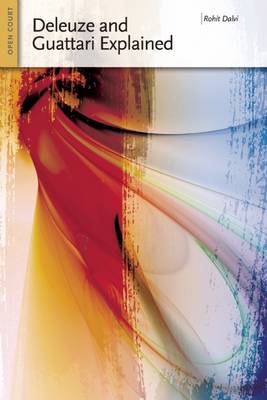Ideas Explained
1 total work
This introduction to the French writers Gilles Deleuze and Felix Guattari explains the thought of these critics, humorists, sociologists, philosophers, and historians. Along with radical writers like the Situationists, Foucault, and others, Deleuze and Guattari stress the need to see how what are taken to be natural relations are ultimately the result of capitalism and its demands. Deleuze and Guattari offer us a new vocabulary to rethink the world and our place in it. Their concepts let us imagine entirely different ways of relating to the world. Even as Deleuze and Guattari try to free themselves from the limitations of the philosophical tradition, they remain committed to its most basic project: self-transformation. The Western philosophical legacy is distilled to outline a program for individual and collective transformations. Though Deleuze and Guattari's prose may be daunting at first, author Rohit Dalvi maintains that it is not a serious hurdle. Understanding Deleuze and Guattari involves familiarizing ourselves with their verbal tricks, humor, and conceptual idiom, and learning to enjoy the ride. However, their work remains, in Deleuze's words, "plain old philosophy."
Reading their books is a challenge, yet Dalvi promises that this work will be fun and amply rewarded.
Reading their books is a challenge, yet Dalvi promises that this work will be fun and amply rewarded.
